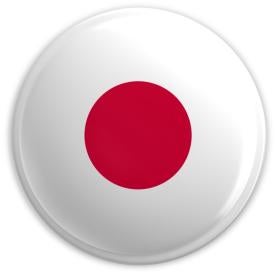Japan’s Ministry of Health, Labour and Welfare (MHLW) is working a new positive list system for regulating food-contact materials that could be enacted as early as 2018. A draft report concerning the new framework is currently open for public consultation until April 15, 2017. The report is expected to be finalized on May 25 by the 8th Committee for reviewing the regulations on food utensils, containers, and packaging. Once finalized, the report will be published on MHLW’s website.
The draft report reflects discussions with MHLW and various trade groups in Japan on developing a regulatory framework that is comparable to that found in the U.S. and the European Union (EU). Currently, Japan relies on a system that is based on a general safety standard and various mandatory government standards, as well as a voluntary system that is implemented in the form of positive/negative lists by industry trade associations. As noted in the report, however, government and industry have determined that the current system would be helpful in addressing the recent diversification of products in the marketplace and the need to ensure the safety of utensils, containers, and food packaging. (See the PackagingLaw.com article, Japan Moves towards Adoption of Positive Lists for Food-Contact Materials, for background information.)
According to the draft report, synthetic resins will be the government’s first focus in terms of developing a positive list system. The draft report notes that, in developing the positive list of synthetic resins, MHLW will consider the available toxicity information on the resins; any limitations on the resins should reflect their potential to migrate to food. The draft report also makes clear that plastic additives and other food-contact sectors may eventually be included in the new positive list system; this includes paper and paperboard, as well as metal and recycled materials, though the report suggests that these sectors will be considered on a case-by-case basis. Safety information on these sectors, as well as the way in which these materials are regulated in other countries, will determine whether they will be subject of positive listings.
The Japanese government also expects to release a draft guideline on good manufacturing practices (GMP) in late May of this year. This draft guideline will outline how to address the suitability of raw materials and food-contact products at all stages of production and distribution. Importantly, the draft GMP guideline is expected to introduce a proposed positive list of resins. This proposed listing will be based on the voluntary positive lists established by three trade associations in the country—the Japan Hygienic Olefin and Styrene Plastics Association (JHOSPA), the Japan Hygienic PVC Association (JHPA), and the Japan Hygienic Association of Vinylidene Chloride (JHADVC).
It is expected that, in 2018, the Food Sanitation Law will be amended to make the positive list system for food-contact materials mandatory. However, an implementation phase of several years will likely be introduced to promote the smooth transition to this new scheme.



 i
i

